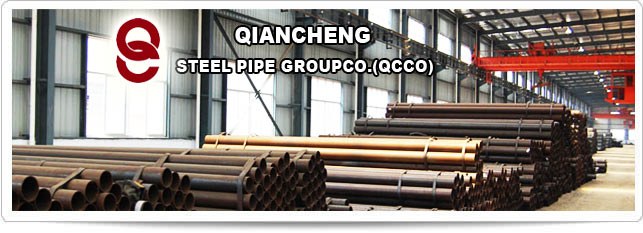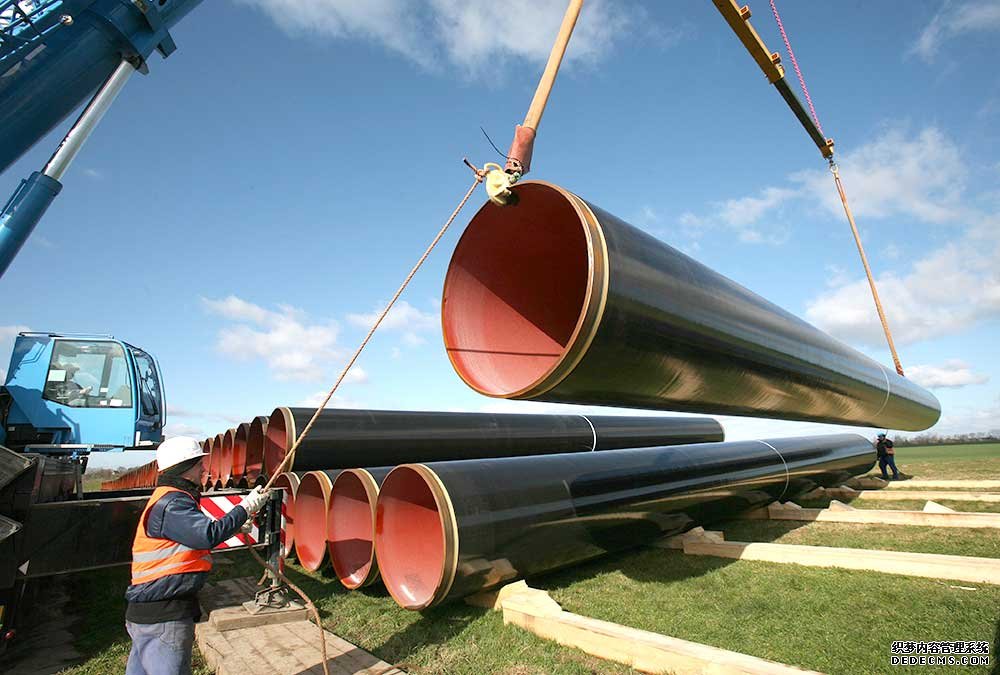Water pipeline - Handling and storage of coated pipes
Home >
-
API steel pipe
- API steel pipe
- API steel casing pipe
- Casing and Tubing
- API drill pipe
- API5L steel pipe
- Oil pipeline

-
Carbon steel pipe
- Carbon steel pipe
- Welded steel Pipe
- seamless carbon steel pipe
- Petroleum Casing Pipe

-
Alloy steel pipe
- astm a 335 gr p22
- alloy steel pipe l555
- 25crmo4 alloy steel pipe
- alloy pipe a335 p11








- interpret seamless steel pipe
- Water pipeline - Handling and
- Applications of welded pipe pil
- welded steel pipes and Seamless
- ASTM A 106 Seamless Pipe
- Carbon dioxide resistant oil ca
- seamless steel pipe On-line col
- EN 10305-1 / DIN 2391 cold draw
- EN 10255 Standard Pipe,replaces
- API 5L A53 / A106 Grade B, Seam

One of the Top 500 enterprises in China foreign trade
QCCO was approved as a member of “China Association for Contracting Projects Abroad “and granted a membership certificate on Sep 28,2005; “Credibility Rating AAA certificate in Foreign Trade” was granted to QCCO by China Shippers’ Association

- plan storage, lifting and transport in advance
- make sure there is sufficient and correct auxiliary equipment
- carry out an acceptance inspection
- be careful not to damage the pipe ends
- support and bind the bundles properly
- use a sufficient number of appropriate packers and wooden bases.
See also SSAB’s handling instructions for pipe products and the following publications:
- API RP 5L1, Recommended Practice for Railroad Transportation of Line Pipe
- API RP 5LW, Recommended Practice for Transportation of Line Pipe on Barges and Marine Vessels. .
To make it easier to handle pipes, we can deliver base packers, lifting lines, end stoppers and bevel protections.

External sheathings
PE coating
The line pipes for ground installations are usually furnished with an external sheathing of polyethene. Usually this is a so-called 3-layer sheathing for which a thin epoxy layer is first melted onto the shot-blasted steel pipe, over which the coats of adhesive and polyethylene are then applied (Figure 1). When the coatings cool down, bonds form between different components, which ensures the high level of adhesion and good mechanical and chemical properties of the coating.
The epoxy layer protects the pipe against corrosion. The polyethene coating protects the epoxy layer against damages. The adhesive layer functions as a glue between the epoxy and polyethene layers. If the polyethene layer remains intact there is little or no corrosion. The coating also protects the pipe during transport and installation.
The external coating can be damaged by mechanical impact, chemical substances, UV light and abrasion. Due to the different thermal expansion of the coating material and steel, the long-term storage of pipes in sunshine may decrease the adhesion of the coating in pipe ends.
Protective painting and storage lacquer
Protective painting and storage lacquer are intended only for temporary protection during storage. They must be removed before the actual primer coating and coating by means of shot blasting, for example.
Coatings of pipe fittings
Pipe fittings refer to the fittings of pipes for water mains such as fabricated bends and tee fittings. Pipe fittings are now most commonly coated with polyurethane. Polyurethane provides excellent protection against mechanical wear during the storage, transport and installation of pipes.
Internal coatings Pipes for water mains
Steel pipes for water mains and their components are supplied with a lining of concrete or epoxy.
The concrete cast used consists of
• SR-cement
• Dried, pure natural sand
• Tap water The thickness of the concrete lining is 7–15 mm, depending on the diameter of the pipe.
Ferric hydroxide, which forms on the interface of the concrete lining and steel pipe, protects the pipe against corrosion and fastens the concrete firmly to the steel. Minor cracks appearing in the concrete during e.g. transport or installation are not dangerous, because when exposed to water, concrete expands and thus fills the minor cracks. If necessary, the concrete can be moistened by watering with tap water. The epoxy lining of pipes for water mains is made of foodquality 2-component epoxy that is practically solventfree. The lining has good wear resistance and gathers no sediment. The thickness of the lining is about 0.5 mm.
上一篇:Applications of welded pipe piles and Testing and Materials


